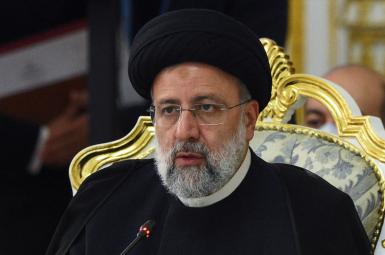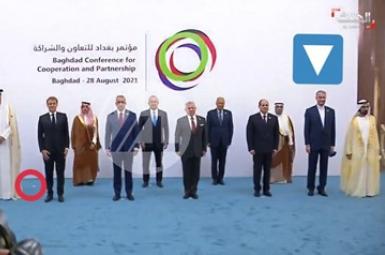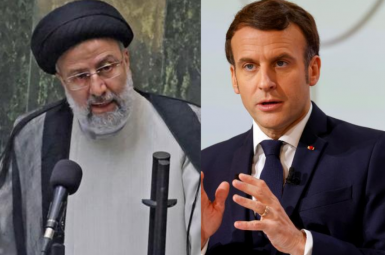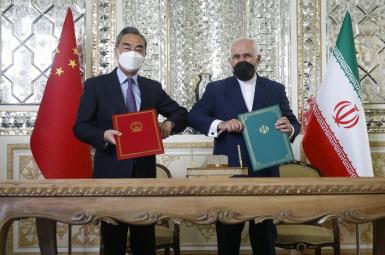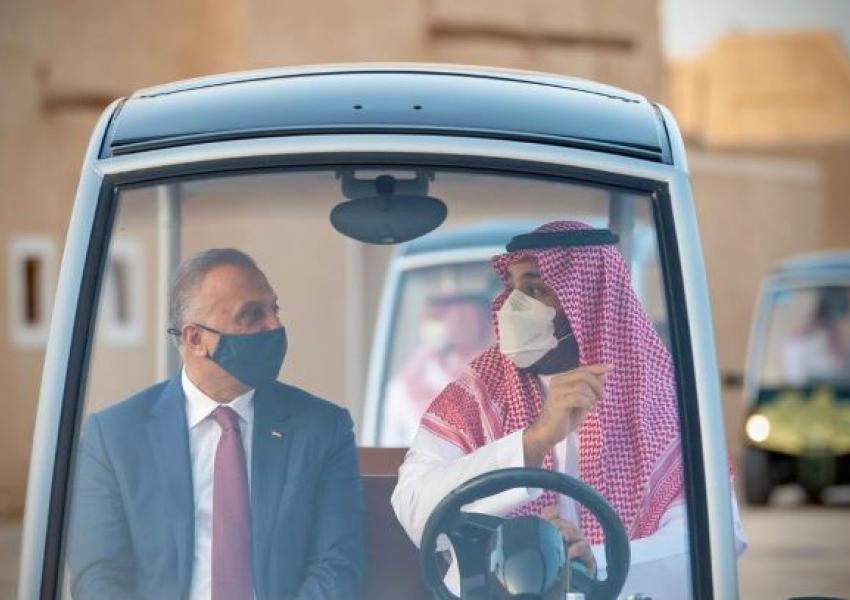
Regional Countries To Test Waters In Baghdad Summit
All eyes are on Baghdad this week for an upcoming summit of regional countries on Saturday, organized by Iraq and meant to reduce tensions, particularly between Iran and Saudi Arabia.
The big question is which countries will attend and at what level of representation. So far only Kuwait has officially announced the participation of its prime minister.
"Even if we bring the foreign ministers together at one table this could be considered a breakthrough to end the tensions between Iranians and the Gulf Arabs," an official close to Iraqi Prime Minister Mustafa al-Kadhimi was quoted by Reuters as saying.
Saudi Arabia and Iran held direct talks earlier this year brokered by Baghdad and vowed to continue the process. Iran isolated by US sanctions and seen as a serious threat by Persian Gulf Arab states wants to try to amend relations with neighbors. Saudi Arabia seeing the Biden administrations policy of holding negotiations with Iran is looking for a reduction of tensions, not certain what impact those talks would have.
A politician close to the prime minister said Iraq had received "positive signals" from Tehran and Gulf Arab countries that they were ready for more direct talks. Baghdad hopes that the new Iranian president Ebrahim Raisi (Raeesi) will attend, but so far Iran has not made an announcement, probably waiting to see who will show up in Baghdad.
Egypt and Jordan, both allies of the Gulf Arab monarchies, have been invited to the Baghdad meeting along with Turkey and French President Emmanuel Macron.
Relations between Riyadh and Tehran began deteriorating early in 2010s, as the Arab Spring movement in Syria turned to armed conflict. The Islamic Republic immediately saw a danger that President Bashar Assad, long an ally, might fall and rushed in to render military support. Saudi Arabia and other Arab countries saw the rebellion as a good opportunity to weaken the Syrian regime that had often been a thorn on their side.
Iran’s Syrian intervention signaled its quest to boost influence in the region, particularly establishing a ‘Shiite crescent’ from Iraq to Lebanon. This was seen as a serious threat by Sunni Arab states. Things further deteriorated with the Houthi rebellion in Yemen and Iran’s support. Saudi Arabia felt obliged to militarily intervene on the side of the beleaguered government. In January 2016, after demonstrators attacked and ransacked Saudi diplomatic missions in Iran, Riyadh cut off relations with Tehran.
Since then, tensions have sometimes reached a boiling point, bringing the region close to military conflict, such as the September 2019 drone and missile attack on Saudi oil installation blamed on Iran.
Riyadh and Tehran began direct talks in April to contain tensions while global powers held negotiations on reviving the 2015 nuclear pact with Iran, which Saudi Arabia and its allies had opposed for not addressing Tehran’s ballistic missile program and regional proxies.
Saudi Arabia has said it wants to see "verifiable deeds" from Iran. Earlier this month, Saudi Foreign Minister Prince Faisal bin Farhan Al Saud said an "emboldened" Iran was acting in a negative manner around the Middle East, including in Yemen and Lebanon and in regional waters.
The UAE, an ally of Riyadh, has been in regular contact with Iran trying to de-escalate tensions since 2019 following tanker attacks in Gulf waters.
Those efforts could be stepped up as Gulf Arab states, which have long leaned on Washington to guarantee their security, view with concern its renewed nuclear talks with Tehran and the chaotic end to its two-decade war in Afghanistan.
"The prospect of regional conflict, coupled with their perception of Washington as unreliable, have … prompted the Saudis and Emiratis to pursue a limited, tactical, bilateral de-escalation with Tehran," the International Crisis Group said in a report published on Tuesday.
With reporting by Reuters
